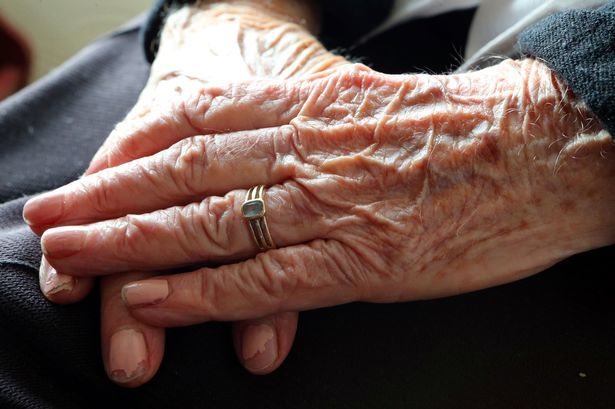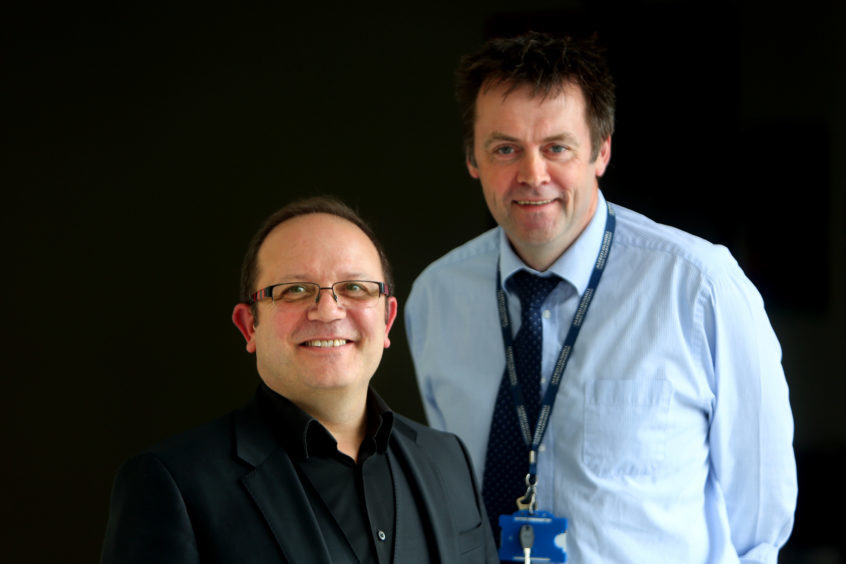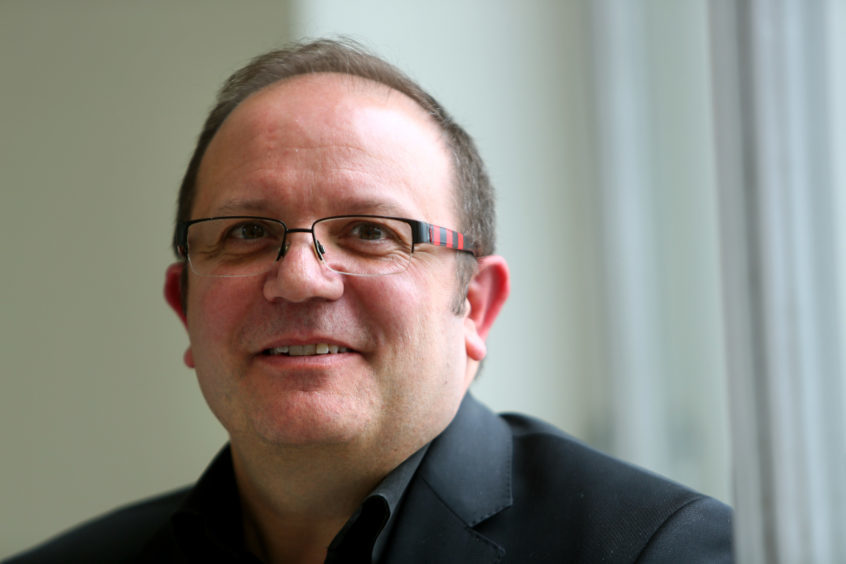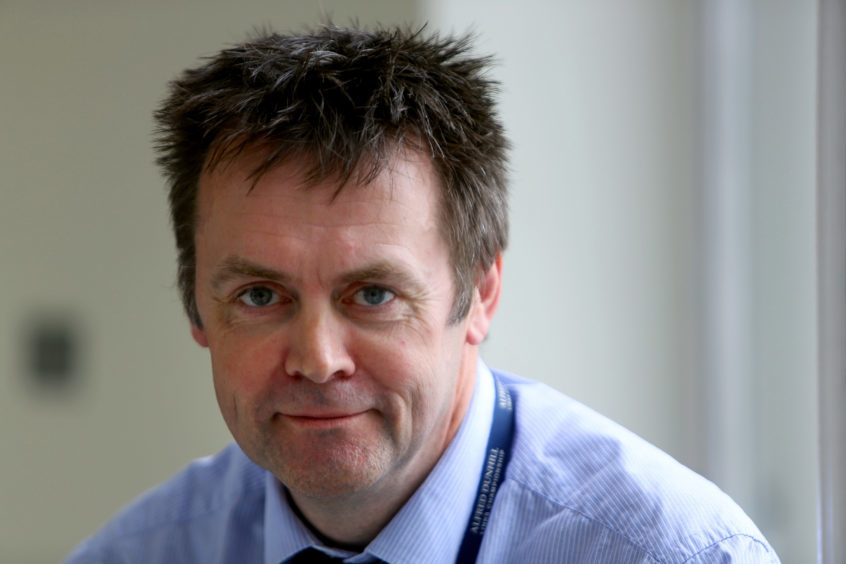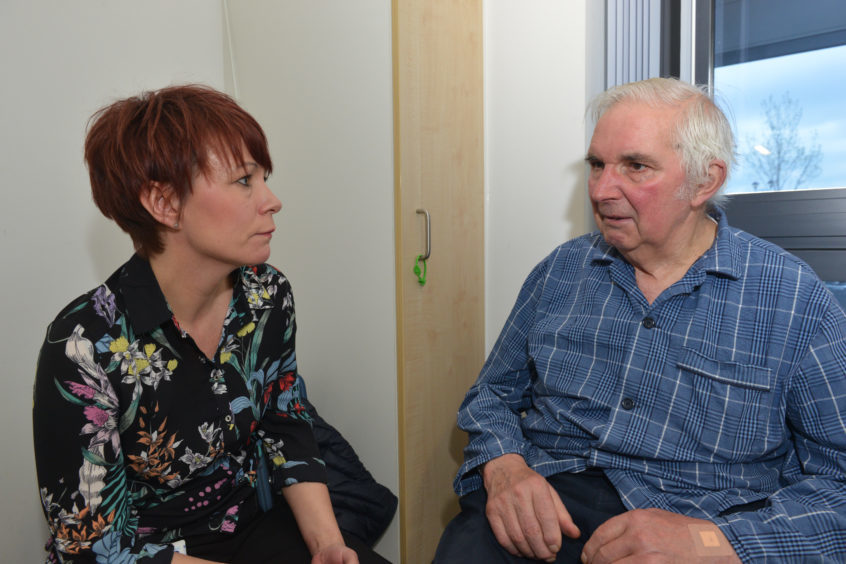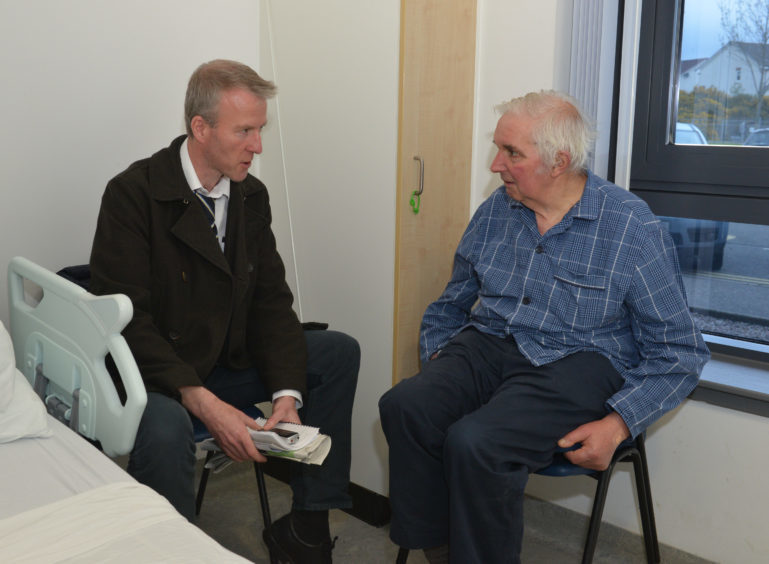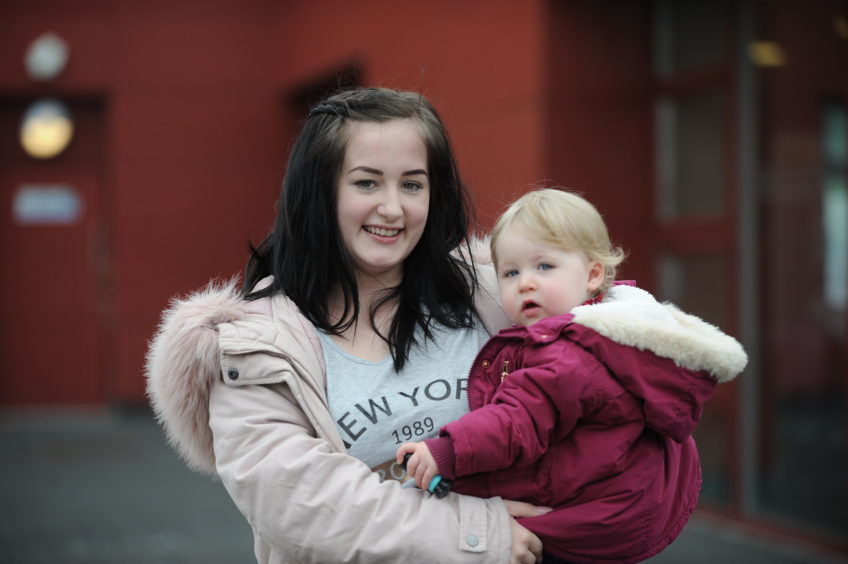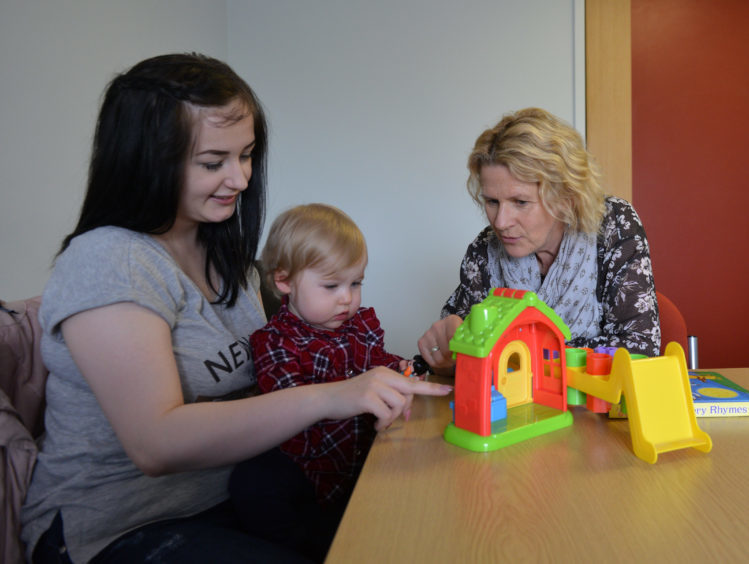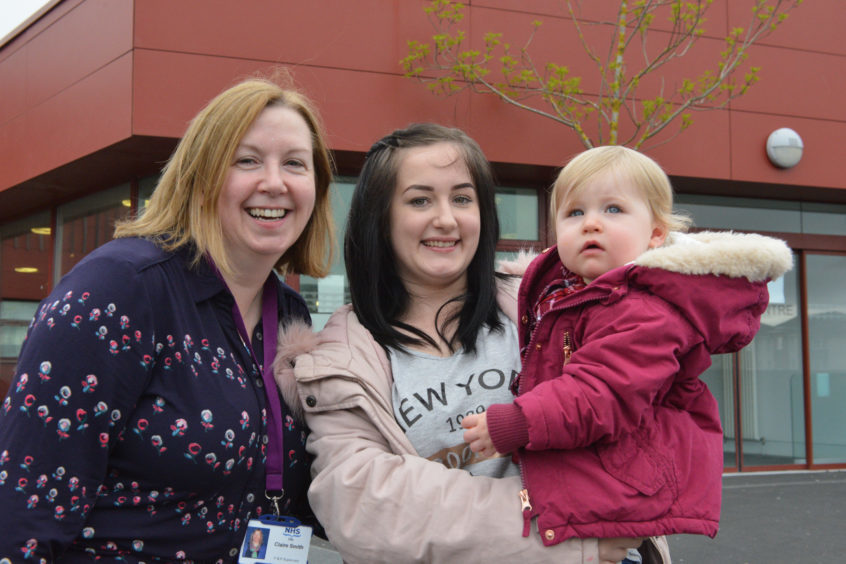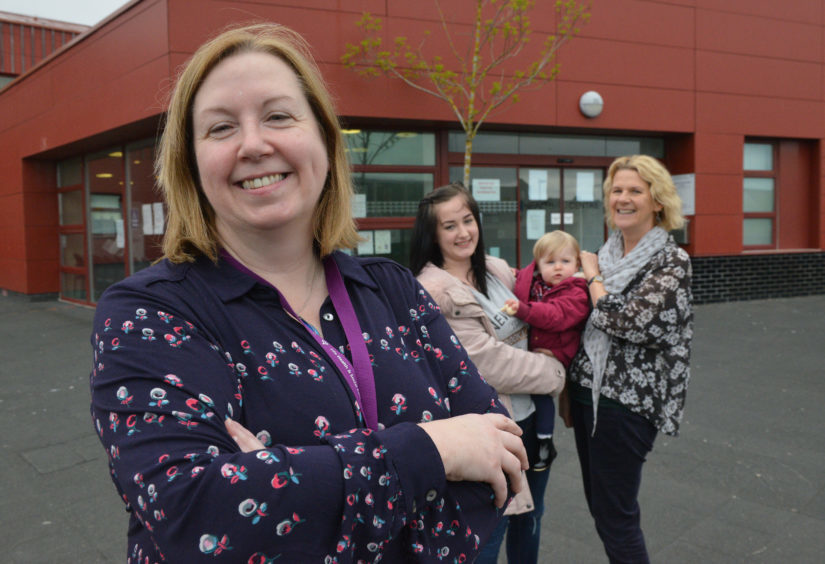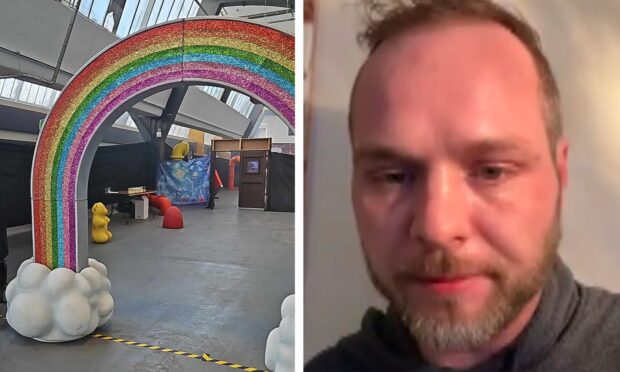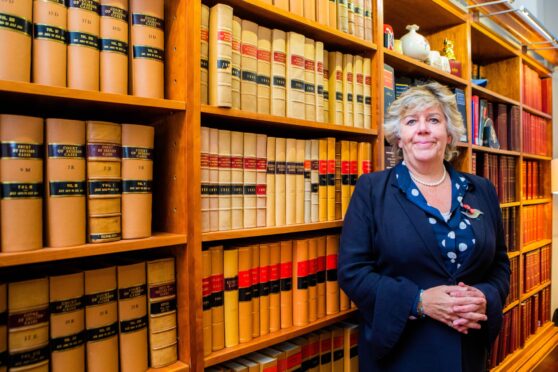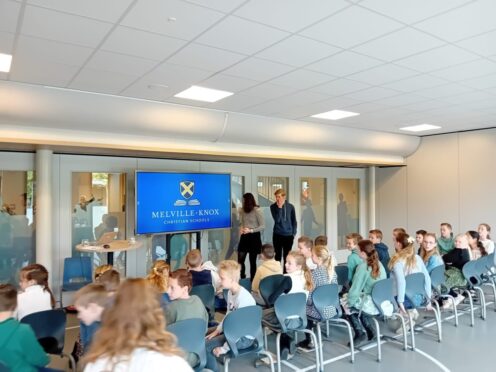The rising proportion of elderly people living with dementia in Tayside means that 1970s-built Ninewells Hospital is increasingly unsuitable for many patients due to its design and signage, it’s been claimed.
The warning has been sounded by Dr Cesar Rodriguez, dementia consultant and associate medical director for older people with NHS Tayside, and dementia nurse consultant Andy Shewan, who say there has to be increased investment in care homes and community hospitals – not only to meet the needs of patients but also to improve NHS efficiencies.
There are currently around 90,000 people with dementia in Scotland – 10% of whom live in Tayside.
However, due to longer life expectancies, that number is predicted to increase by 50% over the next 15 years.
Tayside also has a clinic for younger onset dementia and with a sizeable drink/drug addicted population in Dundee at risk of early onset brain damage, there is also concern about future impact as this cohort of cases moves through the NHS system.
“The reality is the biggest factor for dementia is age,” said Mr Shewan.
“But the difficulty now is dementia patients are beginning to filter into everybody’s care areas. In cardiology, for example, it makes operations very complicated.
“Scotland is leading the world to an extent on dementia care. But some of the difficulties as you lose your memory is the ability to consent to any kind of treatment you get.”
Dr Rodriguez said one of the biggest societal challenges was the “stigma” that still surrounds dementia.
A key strategy in Scotland is for people to stay in their own homes or a homely setting for as long as possible to keep them healthier and ultimately reduce demand on NHS services.
Evidence suggests that elderly patients are much more vulnerable if they are admitted to hospital.
This means that early intervention is key to keep them out of hospital and, if that is not possible, shorten their stay.
However, when people are admitted to acute hospital as a “last resort”, they are increasingly at a much more declined stage.
In Fife, where 70% of patients entering the Victoria Hospital, Kirkcaldy, are now aged over 65 with conditions such as dementia, delirium and cognitive impairment increasingly likely, a pioneering ‘front door’ acute frailty team has been established as a priority to reduce the risk of ‘bed blocking’.
Dunfermline-born Joy Reid, 43, nurse consultant for older people at NHS Fife, says that without a doubt an “absolute success” of the NHS is that people are living longer.
However, a consequence is that innovative ways are having to be found to cope with rising demand.
The former clinical academic fellow at Dundee University, said: “There’s compelling evidence that if frail elderly people stay in hospital for shorter lengths of time, they are less likely to need long term care.
“If we identify them at the front door and by that we mean accident and emergency and our admissions unit, they are less likely to deteriorate and we can get back home to their communities earlier.
“If someone comes into A&E because they have fallen, for example, we’d want to investigate why they have fallen and address that early.
“This reduces pressure on the hospital but most importantly it is also good for the patient if they are followed up in the community rather than being kept in.”
West Fife farmer Bob Shedden, 81, who has Parkinson’s Disease, has spent two days in the Fife frailty unit and won’t fault the quality of care he’s received when The Courier visits.
The Cairneyhill native, who has progressive mobility issues, was admitted after being unable to get out of his chair at home which led to an infection.
After a fully comprehensive assessment by the frailty team, and after successful efforts to get his temperature down, he’s looking forward to getting home after just a couple of days – far earlier than if he had been admitted longer term to a main ward.
“Everyone here has been fantastic – I can’t fault it,” he said. “They even let my wife bring me in a fish supper!”
At the other end of the age spectrum, health promotion is at the forefront of NHS Fife’s Family Nurse Partnership, based in Dunfermline, which works with mums aged under-19 to decide on what goals they wish to achieve and to promote healthy, positive, living in a “non-judgmental fashion”.
Amongst those benefitting is former Beath High School pupil Sophie Boundy, 17, of Cowdenbeath, who was just 15 when she fell pregnant with her daughter Allyssa.
Deciding to have her unplanned baby because she is anti-abortion, and experiencing a “roller coaster of emotions” as sciatica forced her to drop out of her Fife College course and many of her old school friends “abandoned” her, Sophie and her painter and decorator apprentice partner Ross, 20, have been supported by family nurse Joanne, who provides support over and above the usual midwifery and health visitor services.
“I’ve almost had to put my teenage life on hold to prioritise Allyssa,” said Sophie.
“But Joanne is helping me make sure I don’t lose sight of my longer term goals and ambitions. I want to go back to college to do my Highers. I still want to have career. There’s no judging involved. It’s all about building up a trusting relationship.”
Edinburgh-born Family Nurse Supervisor Claire Smith, who has been nursing for 33 years, said there are some remarkable statistics around the achievements of clients who have overcome adversities and the “stigma” of teenage pregnancy to go through this intensive home visiting programme, which works from the 16th week of pregnancy until the baby is two.
It’s been so successful and innovative that there are now plans to expand the service in Fife.
She said: “Having a baby is life transforming. It can be a bit scary, it can be daunting. We recognise that.
“For younger mums it’s just about having someone else on that journey with you – a constant.
“We go with ideas of what we think will be useful. But we also listen to them.
“My priority might be how are you going to feed, but their priority might be I can’t think about feeding until I get my housing sorted out.
“So it’s about being alongside and helping them plan ahead and setting their goals that they want to achieve rather than saying that we need to do this. Sometimes it’s just that extra little steer.
“It’s well documented that if we can help young parents give their children the best start in life whether it’s keeping them out of poverty, building a good relationship with their baby, then there are benefits later on in life.
“Things like healthy diet and better mental health.
“It benefits us all! It benefits our clients in the short term. To have that opportunity and work on aspirations is wonderful.”
*In Thursday’s Courier, Michael Alexander examines how technology and innovation is being used used to tackle various NHS challenges – and hears how antibiotic resistance has the potential to wipe out everything that the NHS has achieved over 70 years.
